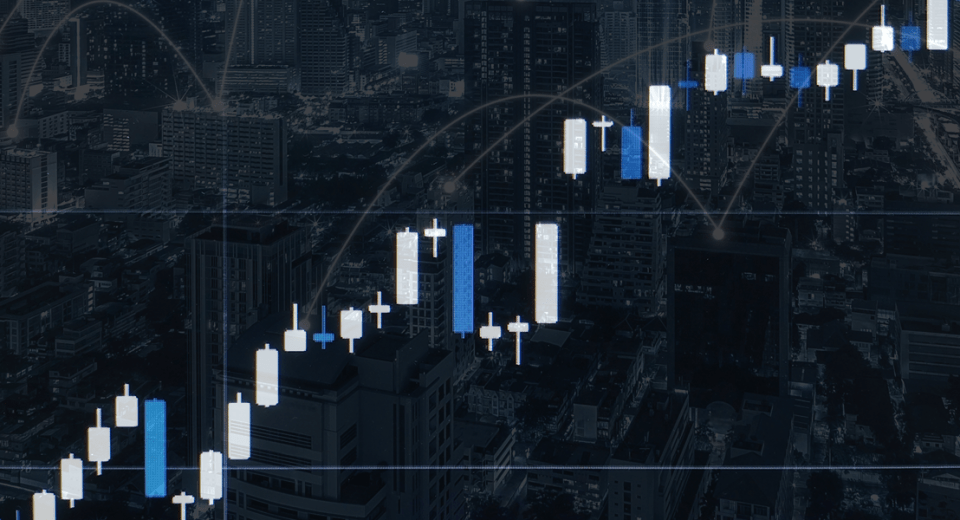How Important Is Trading Psychology

When it comes to trading it’s important to understand that our emotions heavily impact our actions. Negative emotions like fear and greed are as bad as an excess of positive emotions like overconfidence, when it comes to trading the markets. This is why it is important to have strong self-discipline, focus and effective follow-through strategies, to stick to the rules and keep commitments. In short, trading psychology is as important as other attributes like skill, knowledge and experience for trading success.
What is Trading Psychology?
This is a part of trading that you won’t find in your daily charts but is vital for trading success. Psychology is all about human nature and emotions. Traders experience a range of emotions while trading, which affects their interaction with the markets. To become a successful trader, you need to learn to identify and then contain certain emotions like anger, greed, fear and panic.
Positive thinking is essential and traders need to be able to cope with conflicting thoughts. For example, short-term gratification and long-term investment goals often require completely different mindsets and it’s important to know which one you’re aiming for. Experts suggest that it is essential to have strategies that can change internal states of frustration and confusion to the feeling of being purposeful and grounded.
Cultivating the strength to bounce back from failure comes from deep self-awareness. What we think and do controls our actions and those actions are responsible for results at the end of the day. Here’s a look at some common emotions in the life of a trader and how to deal with them.
Developing Discipline
Whether we are athletes, musicians or traders, discipline is required to achieve success in every field. In forex trading, this means doing our homework diligently. It is necessary to keep track of the markets, new economic releases, important global news and the whole market mood in general. Traders can take time out to study price variations in everyday charts and industry analysis reports. Also important is getting acquainted with the various trading strategies. Awareness about what signals to expect from the market and the amount of loss that a strategy can generate is also vital. Based on that, risk management strategies will need to be employed. If we trade only the amount that we are comfortable losing, then emotions can be kept in check.
Speaking about discipline, it is also vital to keep our health in check. A sound body and mind are essential to make the right decisions. Traders often fall prey to bad habits like excessive smoking, working long hours and not eating right. It is always good to seek a balance. Over-exhaustion can lead to confusion and anxiety.
Avoiding Greed
Greed is a natural trait among human beings, but too much of it is always destructive. In case an unexpected price reversal occurs, the desire to squeeze in an extra 10 pips could lead to losses. Entry and exit from a trade should always be based upon sound analytical reasons. Holding on to winning positions for a longer time than necessary should be avoided. Inexperienced traders have the habit of risking too much money right at the beginning, instead of employing proper money-management tactics. Remember, over-trading is expensive, even if the market doesn’t wash you off completely. The expenses can eat away into your profits.
Dealing with Losses
It is vital that a trader considers losses as part and parcel of the profession. Even the most successful traders in history have suffered losses at some point in time. It is dangerous to not be prepared for losses, when indicated by the system. If we stick to losing trades, losses will only keep magnifying. Knowing when to take losses in trades is an important part of developing effective trade strategies.
Also critical is what can be learnt from such losses. Successful traders often use trading journals, in which they record all strategies and plans on a day-to-day basis, along with the resulting trades. On introspection, losses can provide key insights into things that might be hampering your trading plans and investment goals.
Getting Rid of Fear
A common aftermath of suffering trading losses is fear. While it is good to avoid things that caused failure the last time, too much caution can lead to traders losing out on winning opportunities too. Traders often do not enter good positions at all or exit trades way too early, out of fear, which could lead to losses. The solution for avoiding fear is to always trade based on your risk tolerance limits. If you do not fear losing $500, and only trade that much amount of money, then you will stay calm during trading, irrespective of the outcome. Another good way to tackle fear is to stay clear of external distractions and influences. When traders pay too much heed to the opinion of others, confidence is shaken.
Differentiating Between Informed Decision Making and Overconfidence
If tackling failure is difficult, keeping successes from going to your head is not easy either. Winning too many trades in a row could lead to overconfidence. If you have started to think that you can leverage up trades just because you are usually right, it is time to rethink. Always stay tuned to reality keeping a close eye on market events, economic indicators and trend directions. Do not overtrade, even if you are on a winning streak. Stick to your plans and strategies.
Overconfidence paves the way for pride and ego. If traders do not understand their mistakes, they cannot learn from them or improve. It is necessary to stay neutral to pre-defined trading strategies. Focus and perseverance are necessary. Having the right knowledge is critical, but it’s also important is to have the presence of mind about when to use the right tools.
Disclaimer
If you liked this educational article please consult our Risk Disclosure Notice before starting to trade. Trading leveraged products involves a high level of risk. You may lose more than your invested capital.




